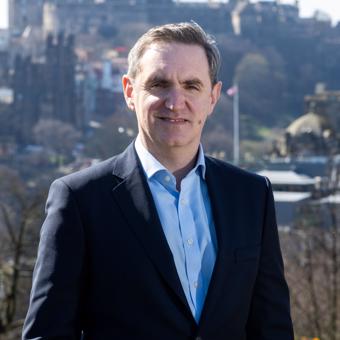Regular contributor Keith Oliver shares his latest musings on Brexit
It was once said that Richard Nixon’s gift to the world was the addition of the word “gate” to every domestic or international scandal. Perhaps history will at some stage include the word “exit”.
Brexit (or more accurate perhaps, “EU exit”) was in fact first coined four years before the historic referendum on 23rd June 2016, in an EU blog dated 15th May 2012, authored by former solicitor, Peter Wilding. This was shortly after the portmanteau “Grexit” first appeared in public discourse–a term coined by two Citigroup economists, in February 2012, in an article which put the prospects of Greece leaving the Euro at 50% at the time.
Now we have “Remoaners” (in part comprised of MPs who want to stay but have no legitimate mandate to secure that), “Brexiteers”, committed to implementing the so-called will of the people (or at least the 52% of those who voted “out”), and a Prime Minister–the latest in a long line of Conservative leaders who have tried to control the warring factions in her own party, with a wafer-thin majority. This is not to mention the Brusssels-Commission-Donald Tusk-Michel Barnier Collective, who have mostly been in no mood to compromise, or at least weren’t until 19th March, when at last the transitional arrangements were agreed. Perhaps we have needed a few home truths from the likes of Jose Mourinho…
And yet there may be light at the end of a very dark tunnel. Aside from the unusually complimentary media response to the PM’s Mansion House pragmatic speech of 2nd March, events in Salisbury have demonstrated that in times of real crisis, international security issues are rather more paramount. The ability of NATO members to speak and act effectively and compellingly makes Brexit look like a lovers’ tiff, albeit a challenging one.
It is not for nothing that the Russian Ambassador, speaking on the Andrew Marr show on 18th March, expressed concern that Britain’s reaction to the horrendous act of attempted murder on the streets of Wiltshire had potentially damaged what Russia had hoped would be a closer relationship with us after our removal from the EU. And once the tit-for-tat expulsions have ceased, the Brexit SNAFU normality will doubtless return.
The Great Repeal Bill (in truth, the Great EU Enactment Bill) will shortly make its way on to the statute book. We will then be in transition to what we are told will be the new dawn nirvana post 1st January 2021.
New trade deals? Possibly. Mile long tailbacks at Dover and Calais? Almost certainly. The Square Mile quieter? Probably - but that may be welcome as the area around Bank has now become in effect a cycle-only zone and pedestrians are an endangered species! BA and easyJet flights running low of fuel, denied landing permission in Brussels, Paris, Munich and Madrid? Unlikely. Air France, KLM Lufthansa and Iberia will still need to land their planes at Heathrow, Gatwick, Stansted and London City.
Whether or not we secure the future deep and loving partnership in paradise with our twenty-seven European friends is very much an open question. One would like to think that a handful of decent litigators and skilled dispute resolvers (“Resolutionists”) from the EU and the UK, respectively, should be able–with the help of one or two good international non-political mediators–to be locked away in a big brother environment for two to three weeks until the white smoke appears. But for that to happen there will have to be an outbreak of positive energy as there are many hurdles to overcome not least issues associated with future trade policy, the customs regime, and international sanctions. Let us be upbeat, though, please in the new post-Salisbury spirit of togetherness!
Remember that on 2nd March 1969 Concorde, a technological marvel of the kind the world had never seen, made its maiden flight. Anglo French designed and built, and in the air four years before we enthusiastically joined the EEC in 1973. Two years later we voted overwhelmingly whether or not to stay–the 1975 Referendum called by Harold Wilson’s government, albeit with a loaded referendum question: “do you think that the United Kingdom should stay in the European Community (the Common Market)?” I proudly displayed a “Think Europe” sticker on the back of my MG Midget at the time.
Referenda were before then an animal unknown to our unwritten constitution. Margaret Thatcher famously said they made for “weak government”. If one wonders if David Cameron regrets his manifesto pledge of 2015 and, with George Osborne, the “Project Fear” approach he adopted, doubtless Messrs Juncker et all equally regret their “Non Non Non” response to Cameron’s ill-fated attempt to renegotiate our membership terms after that year’s election.
Last week, I drove seamlessly from France across the Geneva border into the non-EU zone, where the highly successful country of Switzerland prospers. Once one turns down the vitriol and understandable initial desire perhaps to punish Britain for its affront to its friends, an outbreak of common sense and compromise that lies at the heart of so many negotiations, and with which so many of us are professionally familiar, will no doubt save our bacon.
And Brexit, while we will hardly “rejoice-it”, will eventually come to be regarded as a moment in time and not the end of days.











